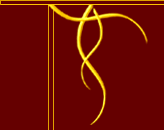|
HWA TOW Acupuncture & Traditional Chinese Medical Clinic
2008 S. Cooper St. Arlington, TX 76013 (817) 261-9919
 And we know that in all things God works for the good of those who love him, who have been called according to his purpose. Romans 8:28 And we know that in all things God works for the good of those who love him, who have been called according to his purpose. Romans 8:28
QUESTIONS AND ANSWER FOR TRADITIONAL CHINESE MEDICINE (T.C.M.)
Q: WHAT IS TRADITIONAL CHINESE MEDICINE (TCM)?
A: Traditional Chinese Medicine (TCM) is the world´s oldest, continually practiced professional medicine. It´s written history stretches back over 2,500 years and its practice is probably much older than that. The methods of TCM include:
. Acupuncture
. Chinese herbs
. Cupping
. Tui-Na (Chinese Massage)
. Moxibustion
. Acupressure
The above TCM´s methods can be used single or combined to each other within the clinical practice. Acupuncture and Chinese Herbal Medicine are commonly used in our clinic. The other three methods: cupping, moxibustion or Tui-Na will be applied if the practitioner thinks it is necessary with the therapeutic treatment.
Q: HOW CAN WE DIAGNOSE OUR PATIENTS WITHOUT THE LAB ANALYSIS?
A: TCM practitioner diagnoses his patient with these five diagnostic methods:
1. Inspection: refers to the process in which the TCM practitioner observes with his eyes the systemic and regional changes in the patient´s vitality, colour and appearance. TCM practitioner realizes the close relationship between the external parts and internal organs of the body. The tongue observation and inspection has been popularly been used in the practice. Any changes appearing in tongue like colour, texture, shape or surface of the tongue can reflex the pathological changes inside our body.
2. Auscultation: refers to the process in which the TCM practitioner observes with his ears by listening to patient´s speech, respiration or cough.
3. Olfaction: refers to the process in which the TCM practitioner observes with his nose by smelling.
4. Inquiring: refers to the process in which the TCM practitioner asks the patients about the onset and progression of the disease, present symptoms and signs, and other conditions related to the disease.
5. Palpation: refers to the process in which the TCM practitioners detects the pathological condition by feeling the wrist pulse, palpating the skin, epigastrium, abdomen, hand, foot or the other parts of the body. Feeling the wrist pulse is the most common method used by practitioner. The location for feeling the pulse at the present time is above the wrist where the radial artery throbs. Practitioner uses his 3 fingers to feel the pulse. These 3 fingers horizontally press at the 3 regions of the wrist. These 3 regions on the left pulse represent 3 internal organs, which are Heart, Liver, and Kidney. The 3 right regions represent Lung, Spleen, and Kidney organs.
|





















